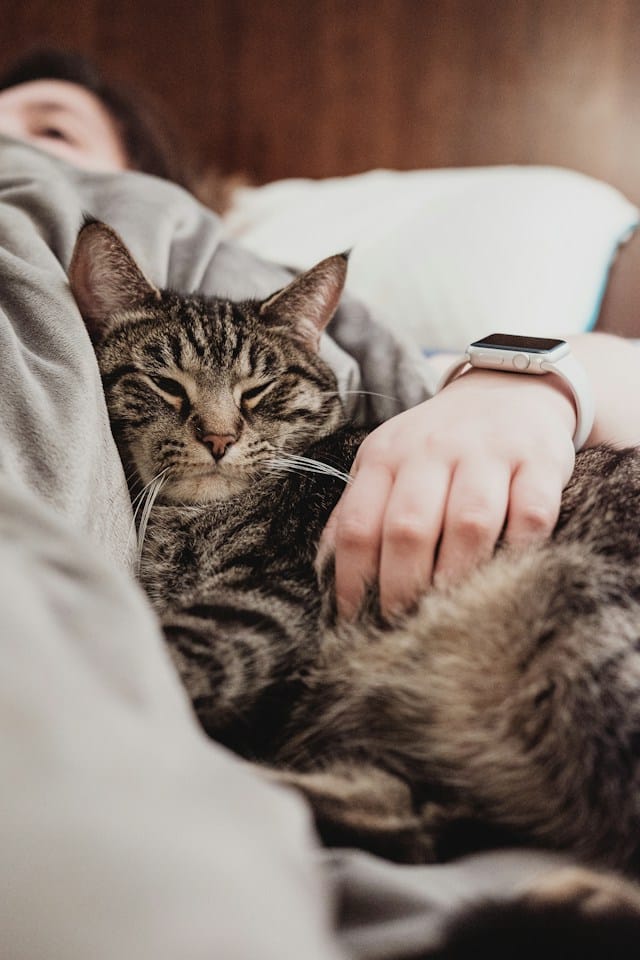What should you do if your pet eats something toxic?

As pet owners, you share a unique bond with your furry friends. They bring joy, companionship, and a sense of responsibility into your lives. However, there also comes a time when your dog, your cat, or any pet you have may find themselves in a dire situation. One of these emergencies may involve your pet ingesting something poisonous or toxic, leading to potential poisoning. This is a serious situation that requires immediate attention and action. In this comprehensive article, we will delve into the steps you should take if your pet eats something toxic, the signs and symptoms to look out for, and the common toxic substances your pets may consume. It is essential to equip yourselves with this knowledge to ensure the well-being of your pets.
Identifying the Signs and Symptoms of Pet Poisoning
The first step in saving your pet from a potentially fatal incident is recognizing the signs of poisoning. It’s critical to remember that poisoning symptoms may vary depending on the type of toxic substance ingested, the quantity, and your pet’s overall health status.
Lire également : How can you tell if your bird is bored?
If your dogs or cats ingest something toxic, they might exhibit multiple physical and behavioral changes. The most common early signs include excessive drooling, vomiting, diarrhea, loss of appetite, and extreme lethargy. Other serious symptoms include difficulty in breathing, irregular heartbeat, seizures, or loss of consciousness. The presence of these signs warrants an immediate visit to the vet’s office.
Steps to Take if Your Pet Ingests a Poisonous Substance
In case of suspected poisoning, there are specific steps you should follow. Firstly, do not panic. Keep a clear mind to effectively manage the emergency situation.
A voir aussi : How to train a dog not to bark at guests?
Immediately remove your pet from the source of the poison and isolate them in a safe area. If possible, and without putting yourself at risk, try to identify the toxic substance your pet consumed. This will help the vet in determining the most effective treatment route.
Next, contact your vet or a pet poison control hotline. Relay all the necessary information such as what your pet ingested, when it happened, and the symptoms they are exhibiting. Do not attempt to induce vomiting unless instructed to do so by a professional, as this might cause more harm than good.
Common Toxic Substances Your Pets Might Encounter
Being aware of the common poisonous substances in your household can help prevent potential pet poisoning incidents. Many everyday items and foods that are harmless or beneficial to humans can be toxic to pets.
For dogs, these include chocolate, grapes, raisins, alcohol, coffee, and certain artificial sweeteners. Plants such as lilies, azaleas, and tulips also prove harmful if ingested by pets. Additionally, household cleaning products, rodenticides, and certain medications can cause severe poisoning in pets.
For cats, items such as onions, garlic, and certain plants like lilies can be toxic. Furthermore, many essential oils and certain medications can also pose threats to your cats’ health.
Treatment and Recovery of a Poisoned Pet
The treatment for pet poisoning predominantly depends on the type of poison ingested, the amount, and how long it’s been since ingestion. Your vet will perform a thorough examination, and in some cases, may need to induce vomiting, administer activated charcoal, or provide specific antidotes.
Intravenous fluids, oxygen therapy, and medications to control symptoms such as seizures or irregular heartbeat might be necessary. It is important to note that recovery time will vary based on the severity of the poisoning and your pet’s overall health.
In conclusion, having a pet means embracing responsibility for their health and well-being. Being prepared for emergencies, especially poisoning, is part of this obligation. Although this information might sound alarming, remember that prevention is better than cure. Regularly check your home for potentially toxic substances, and always keep emergency contact numbers at hand. With the right knowledge and swift action, you can protect your beloved pets from harm, ensuring they live happy and healthy lives.
The Role of Your Vet in Handling Pet Poisoning
A key player in managing a pet poisoning incident is your vet. As soon as you notice signs of poisoning in your pet, you should immediately contact your vet. They are trained professionals who can provide you with vital steps to follow even before you can get your pet to the clinic.
In some situations, your vet might ask you about the toxic substance your pet has consumed. If available, provide as much information as you can. This can range from the type of substance, the amount your pet has consumed, how long it’s been since ingestion, and any symptoms your pet is exhibiting.
When you arrive at the clinic, your vet will likely perform a thorough examination of your pet. This might include blood tests and imaging studies to assess the level of toxicity and the affected organs. Treatment is highly specific and depends on the type of toxin. Your vet might need to induce vomiting, administer activated charcoal to absorb the toxin, or in some cases, provide specific antidotes.
Beyond immediate treatment, the vet plays a vital role in your pet’s recovery. They will monitor your pet’s progress, provide medication to alleviate symptoms, and guide you through the process of nursing your pet back to health.
Conclusion: Being Proactive is Key
Understanding what steps to take if your dog or cat consumes something toxic is of paramount importance. From identifying the signs of poisoning to knowing how to respond and what to expect from your vet, educating yourself can make a significant difference in your pet’s survival.
However, one shouldn’t overlook the power of prevention. Regularly inspect your home for potential hazards, keep toxic substances out of your pet’s reach, and educate yourself on what foods and plants are safe for your pet.
Also, keep your vet’s contact details and a pet poison control hotline number handy. Time is of the essence in cases of poisoning, so being ready to take action at a moment’s notice is crucial.
Remember, our pets depend on us for their safety and well-being. We must be proactive, not only in our love for them but also in our responsibility to protect them. The more prepared we are, the better we can ensure our pets live out their lives happy, healthy, and safe.
